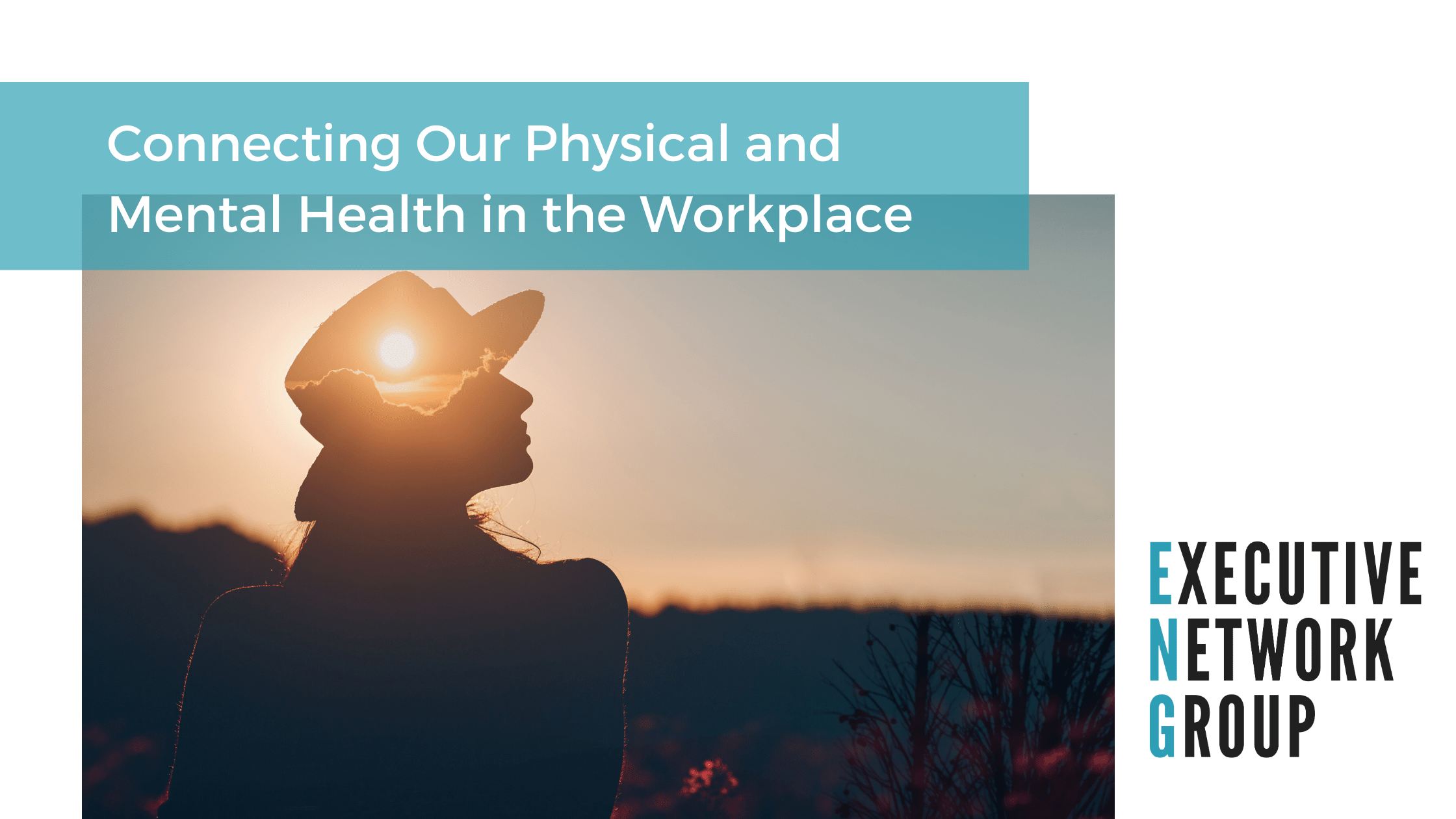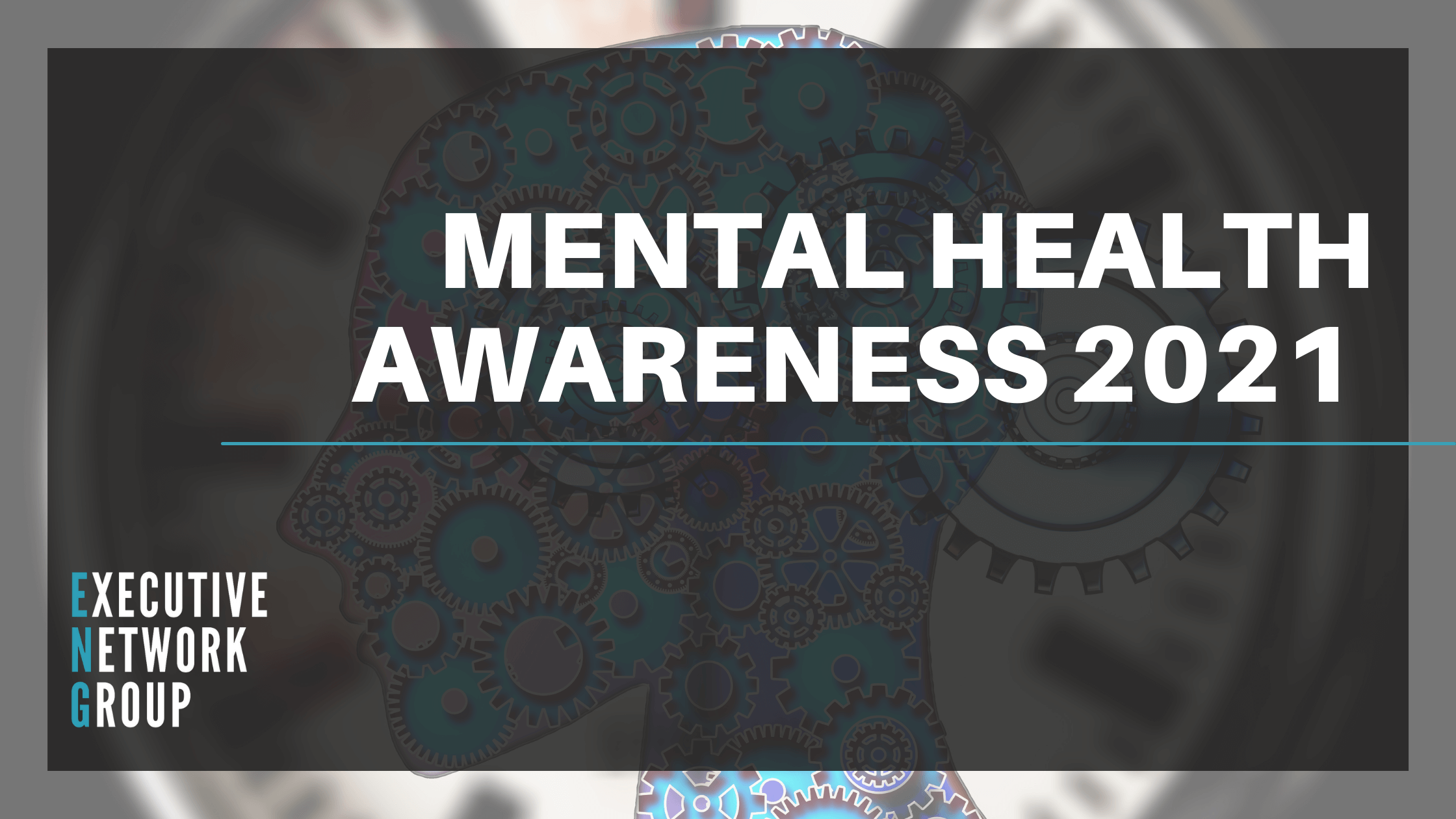Connecting Our Physical and Mental Health in the Workplace

HR teams have, for a good few years, hammered home the importance of mental health in the workplace. According to the Mental Health Foundation, 14.7% of us experience mental health issues in the workplace - with 12.7% of sick days being attributed to battling these conditions. However, can healthy changes to our physical condition positively impact our psychological well-being?
It has been proven that negative changes to our physical state can and will greatly impact our mental state of mind.
"To understand why mental health and physical health are so closely linked, it’s important to remember that the distinction between the two is less important than we may assume. Our thoughts, moods, and mental state may feel abstract or separate from the physical, but they are all happening as part of our brain activity" - Very Well Mind.
Now, it's nowhere as simple as thinking that just going to the gym a few times a week will give you a more positive outlook on life at work - as we know, workplace stress impacts all of us at different times throughout the year, and the effects can vary from person to person.
However, making these positive physical changes can see positive effects - therefore, we have listed five ways to strengthen the connection between our minds and bodies.
Regular Exercise
Probably the most obvious one on this list - however, regular physical exercise is a great way to provide a more positive outlook on your work and personal life. Exercise releases endorphins, which are chemicals in the body that, when they are expelled, create euphoric feelings. Runners refer to this as "runners high".
In a nine-to-five office role - it may be harder to make it to the gym or even get enough time to yourself to go for a run or a walk but taking some time out for yourself to focus on some physical activity - which could be gym work, running, walking, yoga, or sports such as football, tennis, or rugby - will go a long way to taking you out of a stressed state of mind and allow your brain to focus on something else. By the end, you may notice a change in your overall outlook.
Setting up initiatives such as "Steptember", running/jogging clubs, and sports teams at work can allow employees to participate in challenges they would not usually indulge in, create camaraderie, improve social interaction, and inspire teamwork - which in turn can help reduce stress and improve mental health.
Getting Enough Sleep
If your job is bringing on unwanted stress - the last thing on your mind is usually sleep. A lot of us will "soldier on" - working longer hours and logging off late into the night. This, however, can be counter-productive.
"Sleep helps maintain cognitive skills, such as attention, learning, and memory, such that poor sleep can make it much more difficult to cope with even relatively minor stressors and can even impact our ability to perceive the world accurately" - Columbia University.
This is something that HR and divisional leaders must keep an eye out for within their teams. Regular wellness check-ups - both virtually and in-person will go a long way to maintaining that employees log in and out within their regular working hours and get enough downtime and sleep, away from their desks.
Maintaining Good Hygiene
According to The Royal - keeping on top of our hygiene can help prevent both our physical and mental health from slipping.
According to a study last year from CraftJack - 26% of Americans confessed they were brushing their teeth less, 41% said they were washing their clothes less often, and 46% claimed they were taking fewer showers now they work from home instead of going to the office 5 days a week.
Our hygiene is tied to our mental well-being and not letting these standards slip can be imperative to our outlook. Depression can often lead to poor choices, such as staying in bed all day, not eating, showering or keeping up with hair, skin and teeth routines.
Improving ergonomics
Since working from home was introduced due to the Covid-19 Pandemic - workers all around the world had to find a way to transform their homes into makeshift offices. These spaces, where we sit for around 8 hours a day, 5 days a week can not simply be a sofa to lounge on whilst typing on a laptop.
"Without proper computer set-up and use, there are many injuries that may result. Tendonitis is the most common problem, involving tendon inflammation and localized pain in the elbow, forearm, wrist or hand. Bad posture can cause fatigue, muscle strain, and, in later stages, pain." - Princeton University. This discomfort can lead to struggles with concentration whilst working, disconnection from responsibilities and workplace stress which can harm our mental health.
Support from organisations that promote working from home within their teams is paramount. Office equipment can be expensive and employers must help where they can - especially if WFH is mandatory and employees have been hired specifically for their remote circumstances.
Chronic illnesses
Suffering from a chronic illness can be extremely debilitating. Our stress levels can rise through the roof as we try to navigate our jobs whilst dealing with these conditions and our mental health can take a real battering during these times.
Prioritising our health over work can sometimes seem like the wrong thing to do. We take our jobs and our livelihoods so seriously that taking time away, be it sick days and time away for appointments, can feel like "phoning it in" - and this guilt can increase our overall stress.
Taking time away for your health doesn't mean that you don't value your role or that you're letting down those around you. Returning to your job a happier, healthier person will see great upside to your work, including output, better collaboration and increased productivity. Speak to your HR representative if you need this additional support.
In conclusion, our physical health is so important and it is greatly overlooked in relation to improving our state of mind. Healthy cultures are making their way into organisations in the shape of health clubs, gym members as part of your overall remuneration, and healthy eating schemes - which is fantastic.
We urge organisation leaders to put as much effort into looking after their workforce's bodily health and promote these schemes - as they do with mental health which is celebrated and encouraged on a much larger scale. As the saying goes: "Healthy body, healthy mind".

.png)